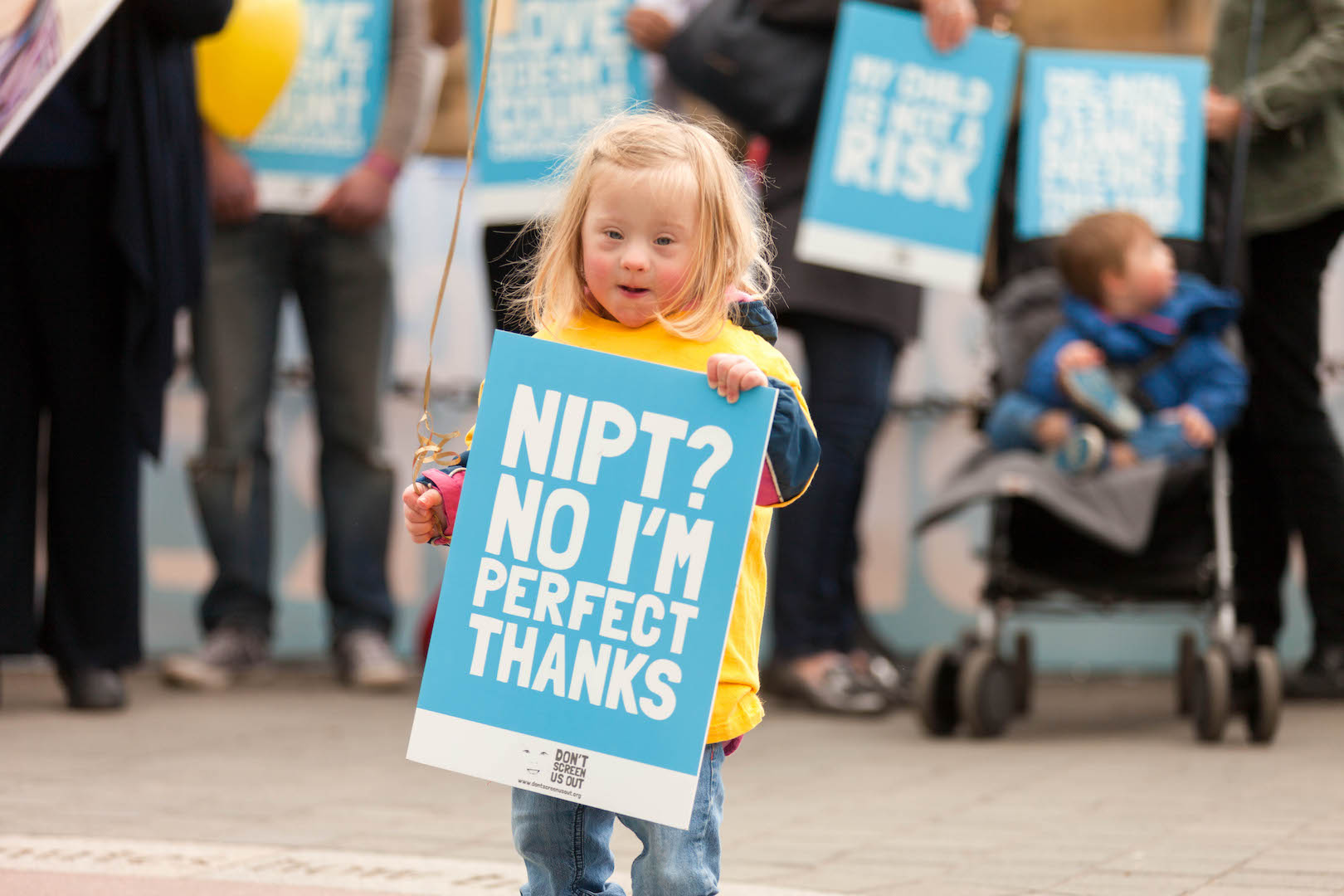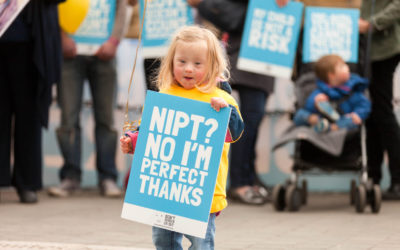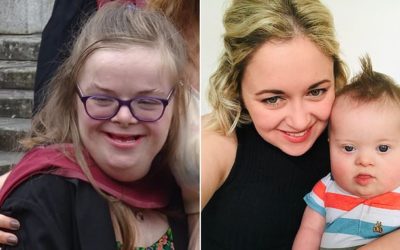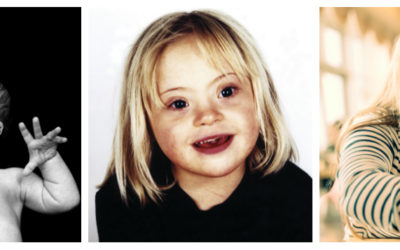The Nuffield Council on Bioethics have set-up a working group to explore the ethical, legal and regulatory implications of recent and potential future scientific developments in non-invasive prenatal testing, including its use in both NHS and commercial services.
They are currently gathering views and evidence on this issue from the general public (submissions close August 1). As we have stated in the open letter to Jeremy Hunt the Nuffield Council on Bioethics is an independent body and the recommendations from the working group are not binding on the Government.
This said, it is still important that the working group hear from people with Down’s syndrome and their families on their concerns on cf DNA screening, the lack of Government consultation with people with Down’s syndrome and their families on the issue, along with their own experiences of dealing with medical professionals before and after receiving a pre-natal diagnosis indicating their child had a genetic condition.
Making a submission – three easy steps
1. Familiarise yourself with the issues around NIPT and the current Fetal Anomaly Screening Programme.
We would recommend starting by reading through our briefing paper which covers our concerns around NIPT and the lack of involvement of people with Down’s syndrome and their families in plans to implement NIPT into the Fetal Anomaly Screening Programme and the changes that we are asking the Government to make to the process so that it does not have a discriminatory impact on people with Down’s syndrome. We have also collected a number of media articles on the issues around NIPT that are available in the media section on our homepage. In addition to this, the working group have put together a background paper on NIPT which is available here and CMF have put together a briefing paper here on NIPT that provides a good outline of main concerns around NIPT.
2. Recall your experiences
If you or a family member received a pre-natal diagnosis during pregnancy, try and recall the entire process you went through, how you were treated by medical professionals, how you felt about any information or materials you received during the process and if you have a family member with Down’s syndrome, did what was communicated during this process reflect the lived reality of how they live their life.
Talk to others in your family that were involved with the process, if they are not making submissions themselves, encourage them to talk through how they felt about the process from their point of view so that you can build a complete picture of the experience here. It’s important to note that regardless of whether you had a positive or negative experience during this process, your experience should be heard by the working group. Negative experiences can provide a clear view on what needs to be improved with the current Programme and positive experiences can provide a view on what is working with families and should be implemented nationally.
3. Make a submission
This can be done through one the following ways. Please note If you know someone with learning difficulties who would like to contribute to the Council’s project on NIPT, please contact Anna Wilkinson at awilkinson@nuffieldbioethics.org
A: Online survey.
This is an anonymous survey. It should take around 20-30 minutes to complete in full. However, not all the questions in the survey will be relevant to everyone, so answer as many or as few questions as you like. You can preview the questions here.
Respond to the survey: www.surveymonkey.co.uk/r/NuffieldNIPT
B: Consultation document (Word format)
This document includes a longer set of questions and may be particularly suitable for people responding on behalf of an organisation. People whose work focuses on the ethical issues raised by NIPT, such as academics working in the field, may also prefer to use this document. This way of responding allows you to tell the working group who you are or who your organisation is (though you can also respond to this anonymously if you wish) and allows the working group to reference your response when they publish findings if you give them permission to do so.
The consultation document, which includes instructions for how to submit your response, is available to download as a Word document here.
C: Other ways to contribute
In addition to the survey and consultation document, the working group will be using other consultative methods to ensure that they hear from a diverse range of people with a personal or professional interest in NIPT. Please contact them if you would like to contribute but are not sure whether the survey or call for evidence is for you, or to alert us to other people or organisations who would be interested in knowing about this project.
If you have any questions please contact Catherine Joynson at cjoynson@nuffieldbioethics.org or Anna Wilkinson at awilkinson@nuffieldbioethics.orgat the Nuffield Council on Bioethics.



